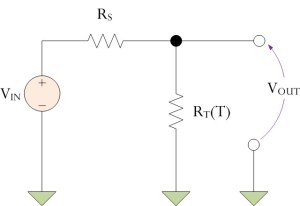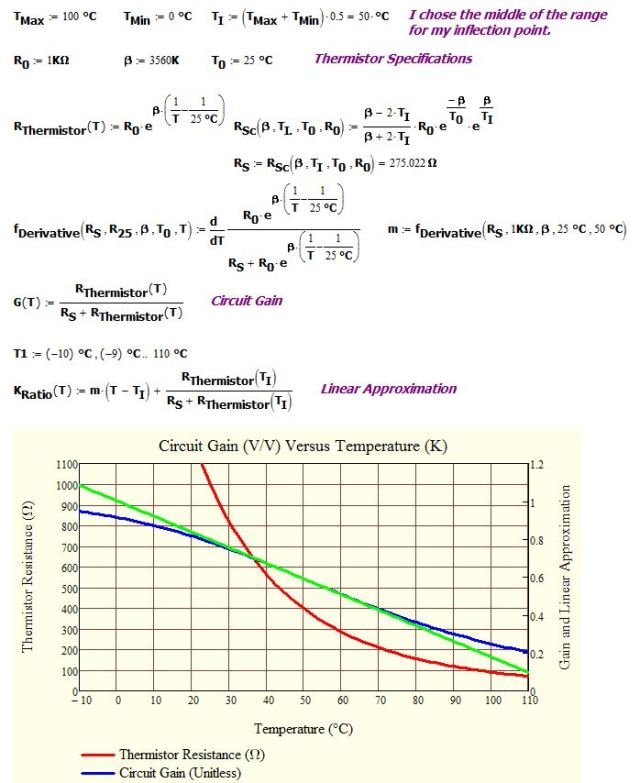Quote of the Day
Vision is the art of seeing things invisible.
— Jonathan Swift, Thoughts on Various Subjects, 1711.
Introduction
I received a question yesterday on a variation on my simple thermistor linearizer discussion in this blog post. In that post, I wanted to accomplish two things:
- linearize the output voltage from a thermistor/resistor divider circuit about a specific temperature.
- The circuit needed an output voltage that increased with increasing temperature.
The question I received yesterday was closely related in that they wanted to:
- linearize the output voltage from a thermistor/resistor divider circuit about a specific temperature.
- The circuit needs a decreasing output voltage with increasing temperature.
I thought enough people may want to see this slight variation that it would be worth putting into a separate post. It turns out the optimal linearization value for RS is exactly the same as for my original post. This result makes sense if you think about it a bit because a nearly linear output across one resistor in the circuit implies a linear voltage across the other. You can derive this result rigorously using the same approach I used in the Appendix of my original post.
For those interested in a slightly more sophisticated circuit, see the short note I published in EDN magazine.
Background
All the background material from the original post is true here. Please see the original post for background details.
Analysis
My discussion here will be brief because I am just expanding on my previous post.
Circuit
Figure 1 shows the circuit in question. The thermistor and the resistor positions have been swapped.
Example
Figure 2 is a rework of my example from my previous post.
Conclusion
Just a quick post to answer a specific question that I thought others may be interested in.
Appendix A: Derivation of Optimal Value of RS
Figure 3 shows an abbreviated derivation -- I did not include much detail.



